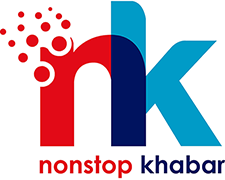To journalists, the year 2017 represents the misfortune of journalism. The International Federation of Journalists (IFJ) says at least 81 reporters were killed and violence against media has soared in 2017. Also, more than 70 media companies were closed in Venezuela where the political and social unrest is festering. A news article from the Guardian reported that “Global press freedom plunges to worst level this century” mainly due to government censorship, crime targeted at journalists and financial pressures associated with the growth of the internet.
To respond to such challenge and turn it into an opportunity, journalists around the world with an international NGO have been seeking ways to enhance press freedom through the international media network and peace journalism in relation to rethinking their role in contribution to building a peaceful, democratic society.
Heavenly Culture, World Peace, Restoration of Light (HWPL), an international NGO under the UN ECOSOC formed a series of HWPL Media Forums throughout the year 2017 to establish a working group of journalists around the world to examine the phenomena of journalism around the world and empower the right and duty of journalism pertaining to peace and media freedom.
“We asked for it” – Problem comes from within
According to some journalists, the current crisis of journalism is due in part to journalism itself. In the HWPL International Media Forum held on July 7, K. M. Harun, Senior Television and Media Consultant in Bangladesh, said, “Ethics of Journalism changed due to commercialism, when media lack ethics then it threatens the peace and harmony rather than promoting it. Media has lost its credibility due to the dissemination of a lot of negative news in an irresponsible manner. Print and broadcast media can only promote peace and harmony when responsible journalism is practiced.”
Another problem pointed out by journalists is the trend of media coverage concentrating on war, conflict, violence, crime, and hatred that instill negative influence to society. In the HWPL Media Forum held on January 15th, Mr. Ali Alabdallah, the journalist from Sweden said, “Recently, the European media focus on the war and the plot of how a number of refugees came to the region. They failed to focus on humanity, culture, and civilization to understand the human nature, which provides ideas of peace and coexistence.”
State and Media Freedom
Media freedom especially information sharing through news reports has been challenged by government censorship in countries with a low level of the democratic system. “Freedom of speech in most of the African countries is still a myth, an ideal. If you do not learn how to write or tell your story intelligently, the chances of survival are minimal,” said Mr. Jean de Dieu Munyembabazi, chief editor of IGIHE in Burundi.
“The media have their own observations that should not be controlled by others. It is important to preserve the independence of the media and obtaining objectivity of news is the responsibility given to journalists,” added President Xinzheng Zhou from Macau Rule of Law Newspaper at the HWPL Media Forum held on December 2, in Tsinghua University, China.

Peace and International Cooperation – Construction of Media Network
Many journalists say that building an international media network focusing on the issues of peacebuilding can bring out solutions to the current challenge. “Media freedom plays an important role in guaranteeing social stability, and in that sense constructing new ways to collect information across national borders will assure the right of each individual to present ideas,” said Mr. Fedorov Petr, the director of international affairs at All-Russia State Television and Radio Broadcasting Company when he spoke in the HWPL Media Forum – Voice of Press in CIS back in June.
On 17 September 2017, at the World Alliance of Religions’ Peace (WARP) Summit, “the Conference for Global Peace Media Network – Freedom of the Press and International Peace Media Community Initiative” was held with 100 journalists from 50 countries around the world. It is suggested that the establishment of media agencies with a concentration of peace can contribute to public awareness, and more journalists should participate in delivering news of peace and settlement of the conflict rather than conflict itself.
“Participating in this network will help journalists to be internationally heard as well, and to present the situation in their countries etc. The international cooperation between professional journalists is something that can always contribute to strengthening the media sector,” said Mr. Bojan Stojkovski, the journalist from Makfax News Agency, Macedonia.
“Who can play the most important role in making a world of peace without conflicts? It depends on journalists. If journalists dedicate themselves to peacebuilding efforts, thoughts of people especially politicians will change. So we have high expectation in journalism,” said Chairman Man Hee Lee of HWPL.
“One of the biggest achievements in HWPL’s peace activities is that we have built media network through journalists in countries with the low level of media freedom. HWPL has actively engaged in spreading a culture of peace designated in the Declaration of Peace and Cessation of War (DPCW) drafted by HWPL as its peace initiative, and an online-based news channel will be the centerpiece of advocacy of media freedom and a world of peace,” said Mr. Ian Seo, general director of department of public relations, HWPL HQ.









